I'm struggling to figure out what is wrong here. I'm sending login information, I can see the Set-Cookie in the Header with the correct value, but the Cookies collection is not getting filled.
This is HTTPS, the login auto-redirects, but I disabled it with AllowAutoRedirect=false to try to troubleshoot this issue.
In this screenshot, you can easily see the debug information and that the cookie should be getting set. I am setting my httpWebRequest.Cookie to a new CookieCollection.

HttpWebRequest httpRequest;
CookieContainer reqCookies = new CookieContainer();
string url = "https://example.com";
string[] email = user.Split('@');
email[0] = System.Web.HttpUtility.UrlEncode(email[0]);
user = email[0] + "@" + email[1];
pass = System.Web.HttpUtility.UrlEncode(pass);
string postData = "email=" + user + "&password=" + pass;
byte[] byteData = Encoding.UTF8.GetBytes(postData);
httpRequest = (HttpWebRequest)WebRequest.Create(url);
httpRequest.Method = "POST";
httpRequest.Referer = url;
httpRequest.CookieContainer = reqCookies;
httpRequest.UserAgent = "Mozilla/5.0 (Windows NT 6.1; WOW64) AppleWebKit/535.19 (KHTML, like Gecko) Chrome/18.0.1003.1 Safari/535.19";
httpRequest.Accept = "text/html, application/xhtml+xml, */*";
httpRequest.ContentType = "application/x-www-form-urlencoded";
httpRequest.ContentLength = byteData.Length;
using (Stream postStream = httpRequest.GetRequestStream())
{
postStream.Write(byteData, 0, byteData.Length);
postStream.Close();
}
httpRequest.AllowAutoRedirect = false;
HttpWebResponse b = (HttpWebResponse)httpRequest.GetResponse();
Tried the exact same code connecting to http://www.yahoo.com and the cookies are put into my collection... Argh...
Here is the Set-Cookie Header value:
s=541E2101-B768-45C8-B814-34A00525E50F; Domain=example.com; Path=/; Version=1